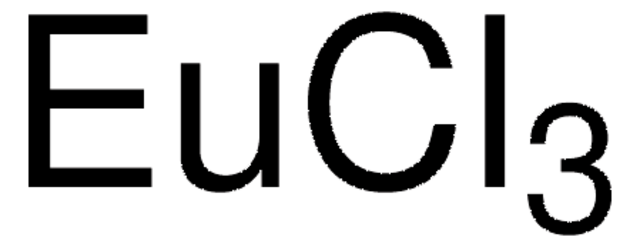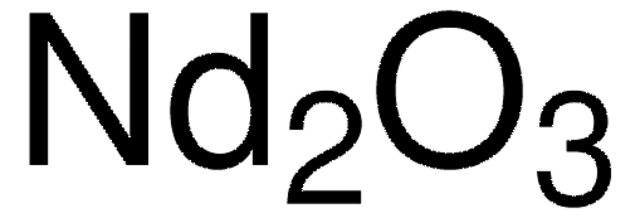634298
Europium(III) oxide
nanopowder, <150 nm particle size (TEM), 99.5% trace metals basis
Synonym(s):
Dieuropium trioxide, Europia
About This Item
Recommended Products
Quality Level
Assay
99.5% trace metals basis
form
nanopowder
reaction suitability
reagent type: catalyst
core: europium
particle size
<150 nm (TEM)
density
7.42 g/mL at 25 °C (lit.)
SMILES string
O=[Eu]O[Eu]=O
InChI
1S/2Eu.3O
InChI key
RSEIMSPAXMNYFJ-UHFFFAOYSA-N
Looking for similar products? Visit Product Comparison Guide
Storage Class Code
11 - Combustible Solids
WGK
WGK 2
Flash Point(F)
Not applicable
Flash Point(C)
Not applicable
Personal Protective Equipment
Choose from one of the most recent versions:
Already Own This Product?
Find documentation for the products that you have recently purchased in the Document Library.
Customers Also Viewed
Articles
Innovation in dental restorative materials is driven by the need for biocompatible and natural-appearing restoration alternatives. Conventional dental materials like amalgam and composite resins have inherent disadvantages.
Three approaches generate white light, including LED-based down-conversion for broader applications.
Magnetic materials find diverse applications from data storage to renewable energy.
Our team of scientists has experience in all areas of research including Life Science, Material Science, Chemical Synthesis, Chromatography, Analytical and many others.
Contact Technical Service







